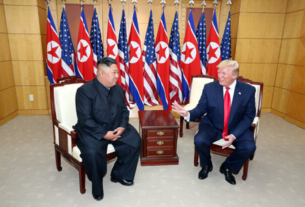The British and Irish governments are considering direct engagement with Northern Ireland’s remaining paramilitary groups. This initiative seeks to encourage these groups to disband and permanently cease operations.
“Some paramilitary factions still operate despite the Good Friday Agreement,” an official stated. They remain involved in criminal activities, including extortion and drug trafficking.
The Independent Reporting Commission (IRC) has recommended structured engagement. This would involve discussions aimed at dismantling paramilitary influence in certain communities.
British officials have acknowledged the ongoing security risks posed by these groups. Some factions continue to control neighborhoods through intimidation and violence.
Irish authorities also support efforts to address paramilitary influence. They believe coordinated action is necessary to ensure long-term stability.
Past efforts to disband paramilitary groups have yielded mixed results. Some organizations transitioned into political movements, while others maintained illegal activities.
The UK and Ireland are evaluating whether direct dialogue could be effective. Any talks would focus on disarmament, reintegration, and law enforcement strategies.
No financial incentives will be offered to paramilitary groups. Officials stress that the goal is to ensure compliance with legal standards.
“The priority is dismantling these organizations,” a government spokesperson stated. Officials aim to remove their presence from communities permanently.
Paramilitary control remains a significant issue in certain areas. Criminal enterprises generate revenue that sustains these groups despite peace agreements.
Law enforcement agencies continue efforts to curb paramilitary activities. Arrests and asset seizures have disrupted some operations but not eliminated them.
Some community leaders have expressed cautious support for engagement. They argue that dialogue could prevent further violence and criminal expansion.
Others warn that engaging with paramilitary groups risks legitimizing them. Critics argue that legal action, not negotiations, should be the primary strategy.
The IRC’s latest report found a reduction in paramilitary-related violence. However, the influence of these groups still affects daily life in some regions.
UK and Irish officials are consulting with law enforcement before making a decision. Their approach will depend on security assessments and political considerations.
Public opinion remains divided on the potential for negotiations. Some residents believe disbandment efforts should have happened years ago.
Others question whether paramilitary groups will genuinely commit to ending operations. Skepticism remains high due to past failed agreements.
The proposed strategy would include strict conditions for engagement. Compliance with legal frameworks would be a mandatory requirement.
An independent expert may be appointed to oversee the process. Their role would involve ensuring transparency and accountability.
International observers are closely monitoring the situation. Similar disarmament efforts in other countries could provide useful lessons.
The UK and Ireland seek a lasting solution to paramilitary influence. They aim to prevent future generations from being drawn into illegal organizations.
Security analysts emphasize the need for long-term planning. Dismantling paramilitary structures requires sustained effort beyond initial talks.
The timeline for engagement remains unclear. Officials are proceeding cautiously to avoid unintended consequences.
The ultimate goal is a complete end to paramilitary activities. Stability in Northern Ireland depends on resolving this issue effectively.




